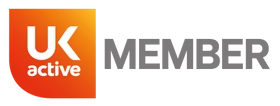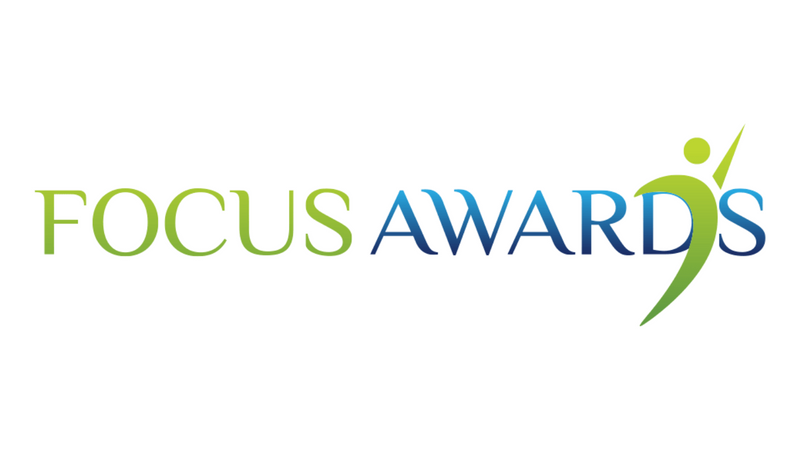Providing nutritional advice is an imperative skill for a personal trainer. Nutrition is incredibly important for any client’s goals and a very important aspect of the overall health and wellbeing of an individual. However, there are set guidelines that a personal trainer must follow when providing nutritional advice to clients.
What a Personal Trainer Can Do
A personal trainer can do a lot of good giving nutritional advice, as long it is done in accordance with proper guidance on what the personal trainer can do. It must be noted however that if a personal trainer goes outside their scope of practice there is the potential for them to do harm, and therefore this must be avoided. Giving nutrition advice should be something that all personal trainers are confident in doing. It should be something that forms part of a personal trainer’s daily work with a client to be able to provide advice on their client’s diet and nutrition.
What a Personal Trainer Shouldn’t Do
It is very important to note that a personal trainer is not a dietician. A personal trainer is not able to go into considerable depth on bespoke nutritional advice. Instead, a personal trainer must pass on established, evidence-based government guidance on nutrition to their clients. They cannot come up with any ideas of their own, any theories of their own, or use any pseudo-science. Anything that a personal trainer imparts to a client must be directly from the government guidance on nutrition.
The Importance of the Eat Well Guide
The government guidance on nutrition is often referred to as the Eat Well Guide. This is established, evidence-based advice that the government has made available, and it is also readily available through the NHS, for the general population to follow to remain healthy with their eating habits. The Eat Well Guide will indicate to a client what they should be eating, what food groups they should be looking to eat foods from, what foods they should be basing their diets on and what foods they should be looking to minimise or avoid. This Eat Well Guide is readily available from the government and NHS websites at no cost, and this should be a very important toolkit for a personal trainer.
How a Personal Trainer Can Utilise the Eatwell Guide
The personal trainer can only pass advice on from the Eatwell Guide. A personal trainer cannot go beyond this, and it would be outside their scope of practice if they were to do so. A useful idea that a personal trainer can do is ask their client to complete a 7-day food diary. Once that is completed, the personal trainer can then sit down with their client and look at that diary and compare it to the Eatwell Guide. They can then perhaps identify areas that the client may wish to improve on and make suggestions on healthier options that the client may wish to consider, as long as it is of course based on and directly from the Eatwell Guide. This is a very important point and must be remembered in a personal trainer’s work.
To ensure your guidance aligns with industry expectations, it's useful to refer to frameworks from organisations such as CIMSPA, which outline professional standards for fitness professionals.
What About Clients with Additional Requirements?
Now, of course there are going to be some clients who may have deeper nutritional requirements. These could be for example for a medical condition, or related to the type of training being undertaken, but whatever the reason is, a personal trainer is not qualified to go beyond providing guidance from the Eat Well Guide. Therefore, if someone had a particular need such as someone with a medical condition, or an elite athlete with a high-level nutritional need, then it is beyond the scope of practice of the personal trainer. In these instances, the personal trainer must refer onwards to a qualified professional like a dietician or a clinical nutritionist. Being able to identify one’s scope of practice, stay within it, and to refer on when something goes outside of that scope of practice, is an imperative skill of a professional and it is certainly something that a personal trainer should be doing.
A quick recap - giving nutritional advice as a personal trainer
To recap,
- A personal trainer can do a lot of good via nutritional guidance
- This must always be in accordance with the government Eat Well Guide
- A personal trainer can provide information to a client and can have a real positive impact on their client’s health and wellbeing from making their client aware of the guidance on the Eat Well Guide
- If someone has particular need that goes outside of this and require things such a bespoke dietary plan/meal plans or bespoke dietary programmes, this is outside of the personal trainer’s scope of practice and the personal trainer must refer to a dietician.
A final note - according to the Association of Nutrition (AfN) - a personal trainer never writes meal plans. Meal plans are only to ever be written by a Dietician or Clinical Nutritionist - both of which are roles that require a University Degree. If somebody asks a personal trainer for a meal plan, it is not within their scope of practice to do so for a client, and they would need to refer onwards to a Dietician or Clinical Nutritionist.
In Conclusion
In conclusion, this article has looked at the scope of practice for a personal trainer when giving nutritional advice and hopefully has provided some guidance on what a personal trainer should and should not do when helping their clients with nutrition. I hope this article proves useful.
Nutrition is a core module of our Personal Trainer Course please check out our course pages for details.
The Role of the Personal Trainer with regards to nutrition advice
A personal trainer has a very important role in providing nutritional advice to clients. Not only should a personal trainer be planning for exercise and fitness activities when working with a client, but a personal trainer should also consider optimising the nutritional intake for their client.
What are the rules for Personal Trainers giving nutrition advice?
There are some firm rules as to what a personal trainer can and cannot do regarding nutrition advice.
A personal trainer does not write meal plans and cannot prescribe food to a client. This work can only be carried out by a dietician. However, whilst you can’t plan out meals for your clients, a personal trainer can pass on healthy eating advice.
A personal trainer can only make suggestions based on established government guidance. This healthy eating advice is based on the Eatwell guide which is produced by the government and can be found on the NHS website. The Eat Well guide is focused on advising healthy individuals on the types of foods and quantities of foods they should be eating. It is this that a personal trainer must always base their nutritional advice on.
A personal trainer cannot stray from the advice that appears on the Eatwell guide, only a dietician would be able to do this. Even if the personal trainer has ideas or beliefs about different variations, they may only make suggestions to clients based upon the healthy eating guidance on the NHS website. A personal trainer should always go by the Eatwell guide in their work.
It’s also wise to familiarise yourself with the standards set by professional bodies like the Association for Nutrition (AfN), which regulates the practice of registered nutritionists in the UK
How would a personal trainer use the Eatwell Guide when giving nutrition advice?
A personal trainer would perhaps ask their client to complete a food diary. The client would then complete their food diary, indicating what they have consumed over a 7-day period. The personal trainer would then take some time to sit down with the client, their food diary and a copy of the Eat Well guide. The personal trainer would look for discrepancies and any areas where the client is perhaps lacking, or where the client is not following the Eat Well guidance. The personal trainer would then make healthy suggestions as to what the client may be able to do. For example, if the client was eating chips with every meal the personal trainer may suggest the client swaps their portion of chips for a portion of vegetables with each meal. Or if the personal trainer notices that the client is snacking on chocolate, they may recommend that the client swap to snacks such as fruit instead.
Things to remember for a Personal Trainer when giving nutrition advice
There are lots of positive ways that a personal trainer can assist a client when it comes to nutrition. It is very important that the Eat Well guide is used, and not strayed from and advice is only passed on based on this. Remember that a personal trainer just makes suggestions, they cannot prescribe food which is only permissible for a dietician to do. By making suggestions in line with the healthy eating guide, the personal trainer can make a real positive difference on the client’s nutritional intake.
Editors notes:
Personal Trainer food queries are common questions from Personal Training professionals. For this reason Personal Training nutrition tips are common “in the gym nutrition advice” given out by Personal Trainers qualified in nutrition.
Personal Trainer nutrition advice in reality should be no different than other health professionals as all personal trainer diet advice, diet tips and nutrition tips should be in accordance with Government nutrition guidelines. Some Personal Trainers may advertise specialist Personal Trainer meals and diets but essentially the Personal Trainer diet advice should be following Government guidelines just like any other health professional.
There is a clear difference between a Nutritionist and Personal Trainer. Personal Training and Nutrition are essentially two different subjects (though noted there is some overlap). Typically a Nutritionist has a degree in Nutrition and is registered with the Association for Nutrition (AfN). Taking this further a Dietician has greater understanding and responsibilities regarding nutrition.
A Personal Trainer should only be providing healthy eating advice (based on Government guidelines) to help their client reach their goals. A “Personal Trainer meal plan” should not be something we hear in the industry as Personal Trainers should limit their Personal Training nutrition advice to passing on healthy eating guidelines as opposed to coming up with their own Personal Trainer diet advice. A Personal Trainer food plan or Personal Trainer nutrition plan may be terms used to disguise that of a meal plan however the rules are the same no matter what term is used – as a Personal Trainer giving nutrition advice should not prescribe food! (only a Dietician or Clinical Nutritionist can do this).
Personal Trainer diet advice or nutrition advice should consist of exploring what the client eats, comparing this to the Eatwell Guide (the Governments advice) and making healthy suggestions based on this in accordance with Government nutrition guidelines. Such best practice should be emphasised in any Personal Trainer Nutrition qualification.
Advantages of a Personal Trainer being qualified in Nutrition
Despite the obvious limitations of Personal Training Nutrition advice discussed above there are indeed many advantages of being qualified in both Personal Training and Nutrition. The obvious benefit is that a Personal Training and Nutrition qualified professional may provide nutrition advice, diet tips and nutrition tips to their clients, They may also give Personal Trainer diet advice as long as it is in accordance with the Government guidelines. A Personal Trainer Nutrition plan (not to be confused with a Personal Trainer meal plan!) may include healthy swaps and suggestions based on the Eatwell guide. Personal Training nutrition advice can make a big difference to a client as the nutrition advice Personal Trainers give will be based on evidence based healthy eating. The more relevant nutrition advice Personal Trainers can give their clients, the more educated the client will be.
Summary of key points
- Personal Training and nutrition are two separate subjects
- A Personal Trainer often gives nutrition advice, diet tips and nutrition tips
- Personal Trainer diet advice must be in accordance with the Eatwell guide
- A Personal Trainer meal plan should not be something offered
- A Personal Trainer diet plan or Personal Trainer nutrition plan should be based on suggesting Government healthy eating guidelines to the client it should not prescribe food
- A Personal Trainer food plan should only focus on suggesting healthy swaps and suggestions as per the Eatwell Guide
To become a nutrition focused Personal Trainer please chcek out our RSPH Level 4 Nutrition qualification or Elite PT Nutrition package







